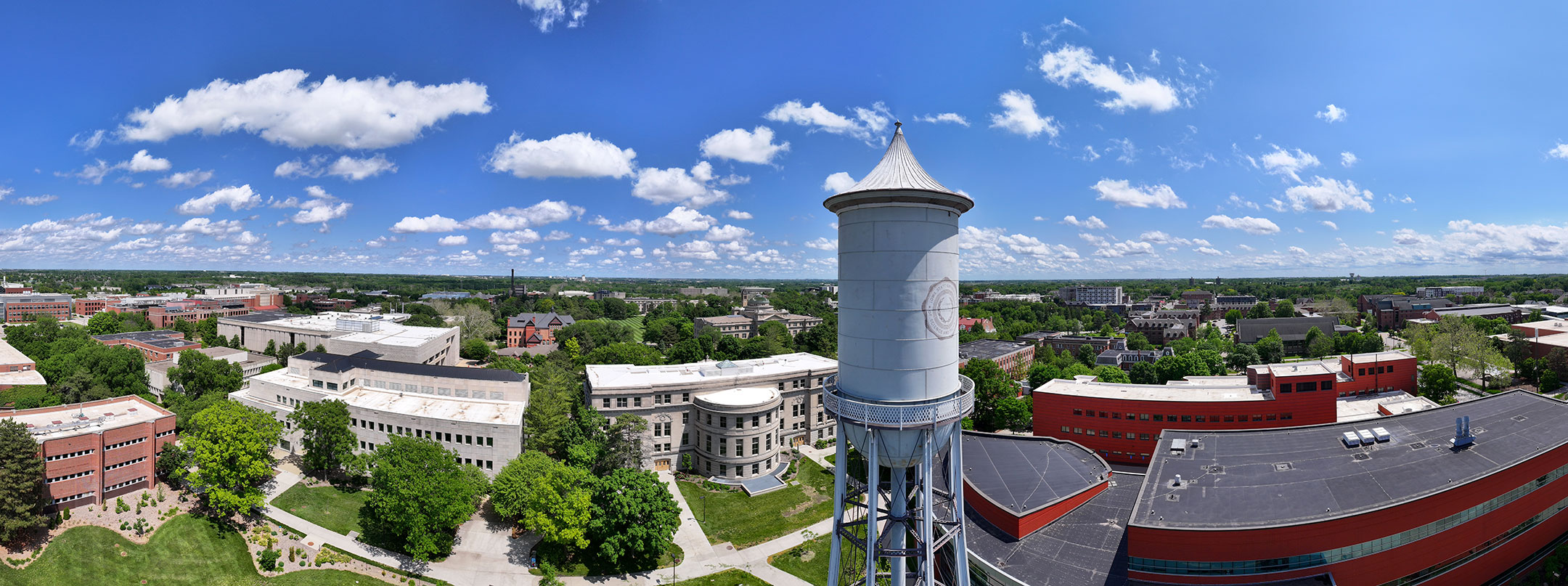Electrical Engineering
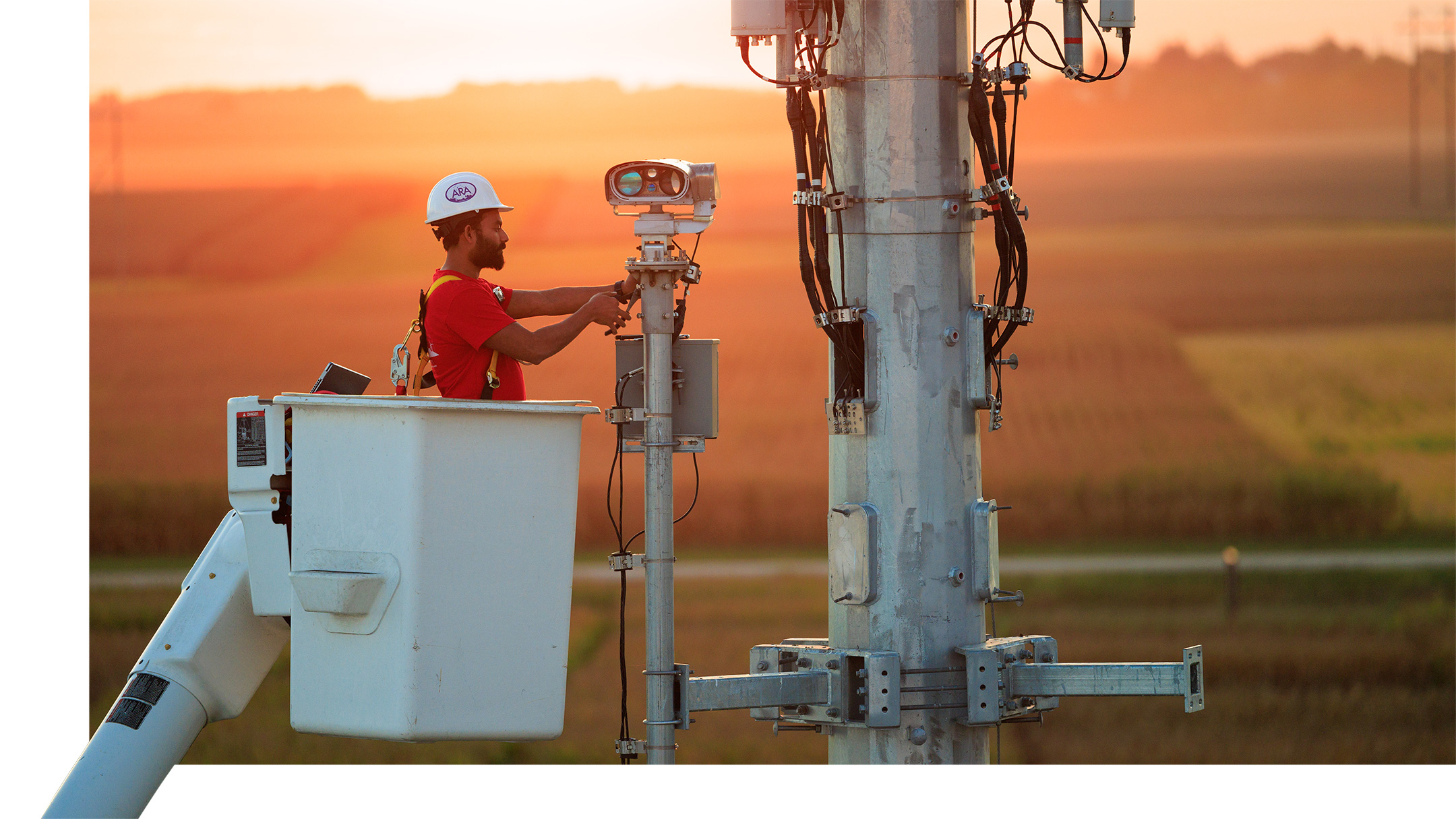
An Electrical Engineer
in the Making
Electrical engineers are in high demand – they are the spark and energy behind every device. Electrical engineers work with energy from wind and solar to the circuits inside phones and tablets. Our graduates are leaders in energy, bioengineering, electronics, and other power systems.
-
98%
employed or continuing education within six months of graduation
-
$79,500
average starting annual salary
-
$25/hr
average earnings for internships and co-ops
A competitive advantage
Iowa State Engineers get hired. And we’re here to help connect you to internships and full-time jobs.
- 1,400 employers recruit engineering students each year
- One-on-one career advising
- Networking opportunities
Community and Support
College is more than just academics. Join the community and you’ll find friends, new perspectives and experiences—and support.
- Learning communites
- Clubs and student organizations
- Support resources and groups
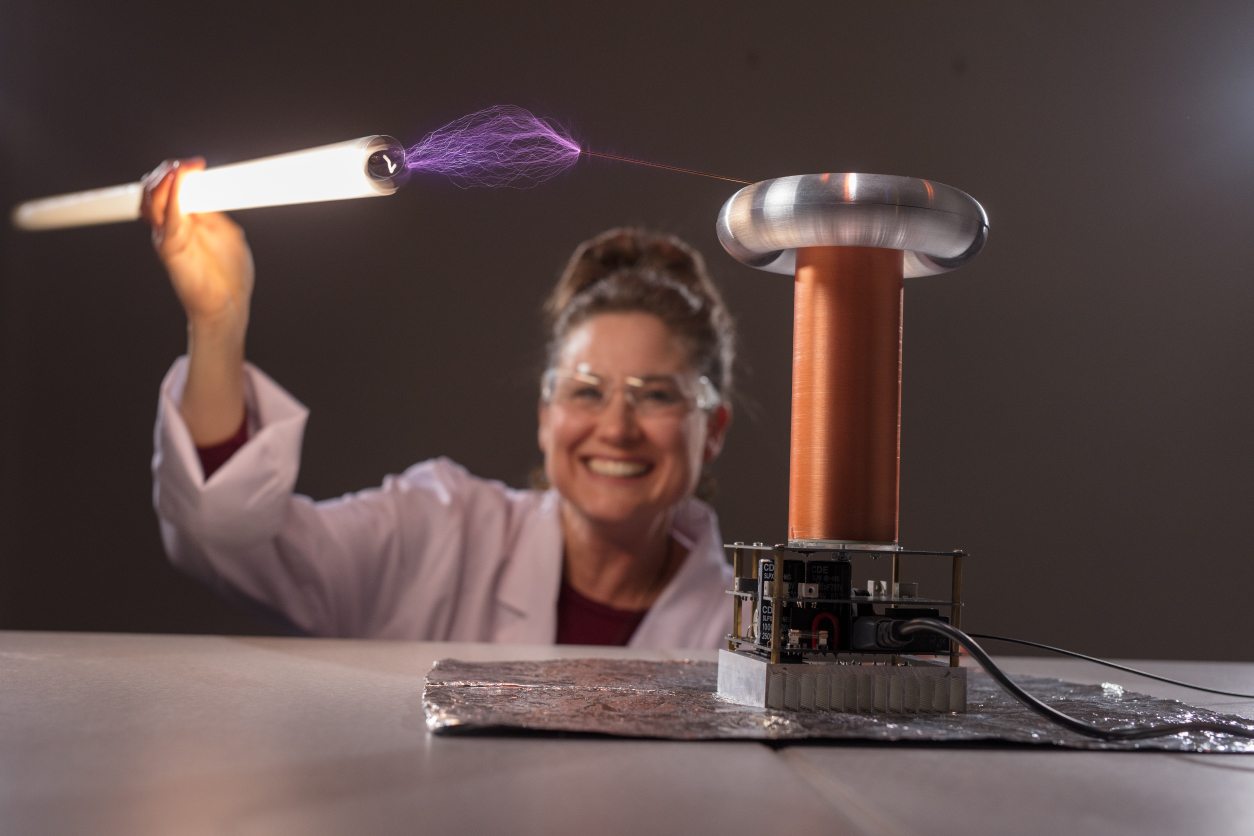
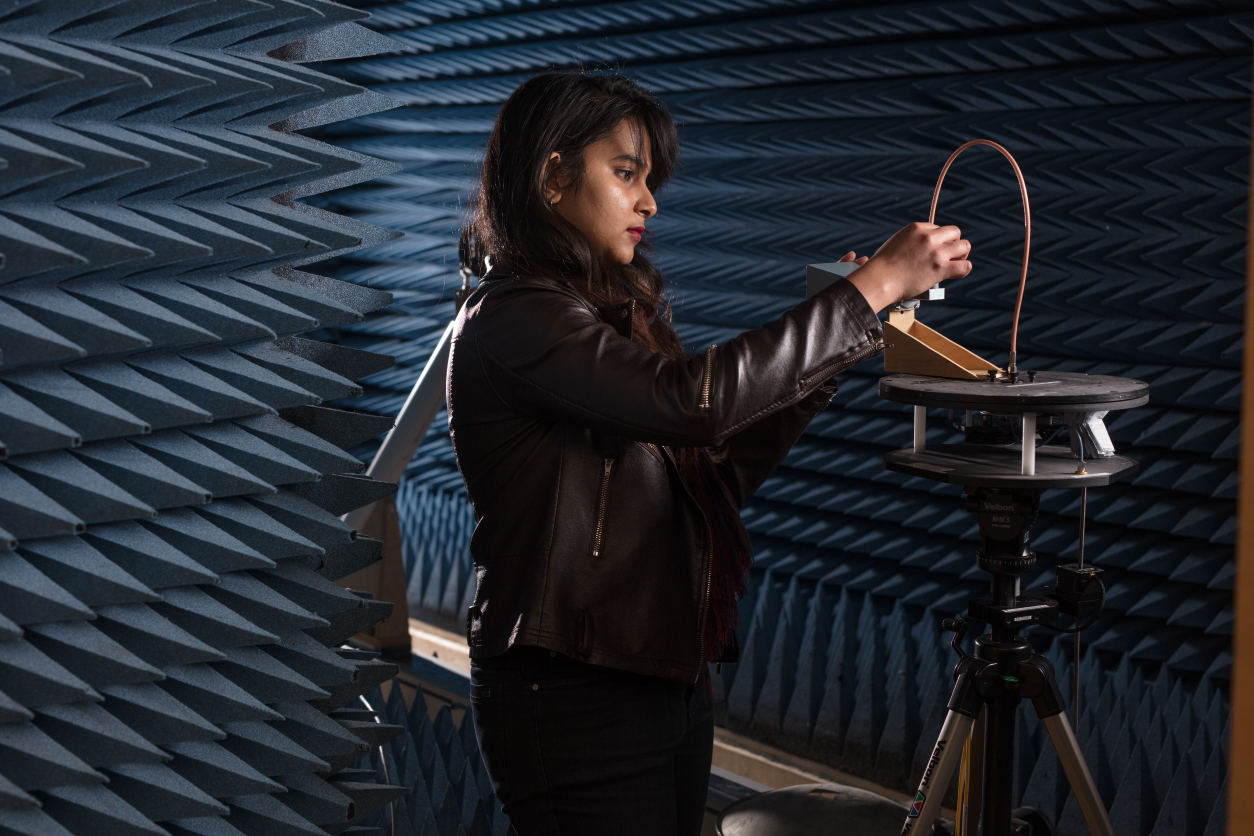
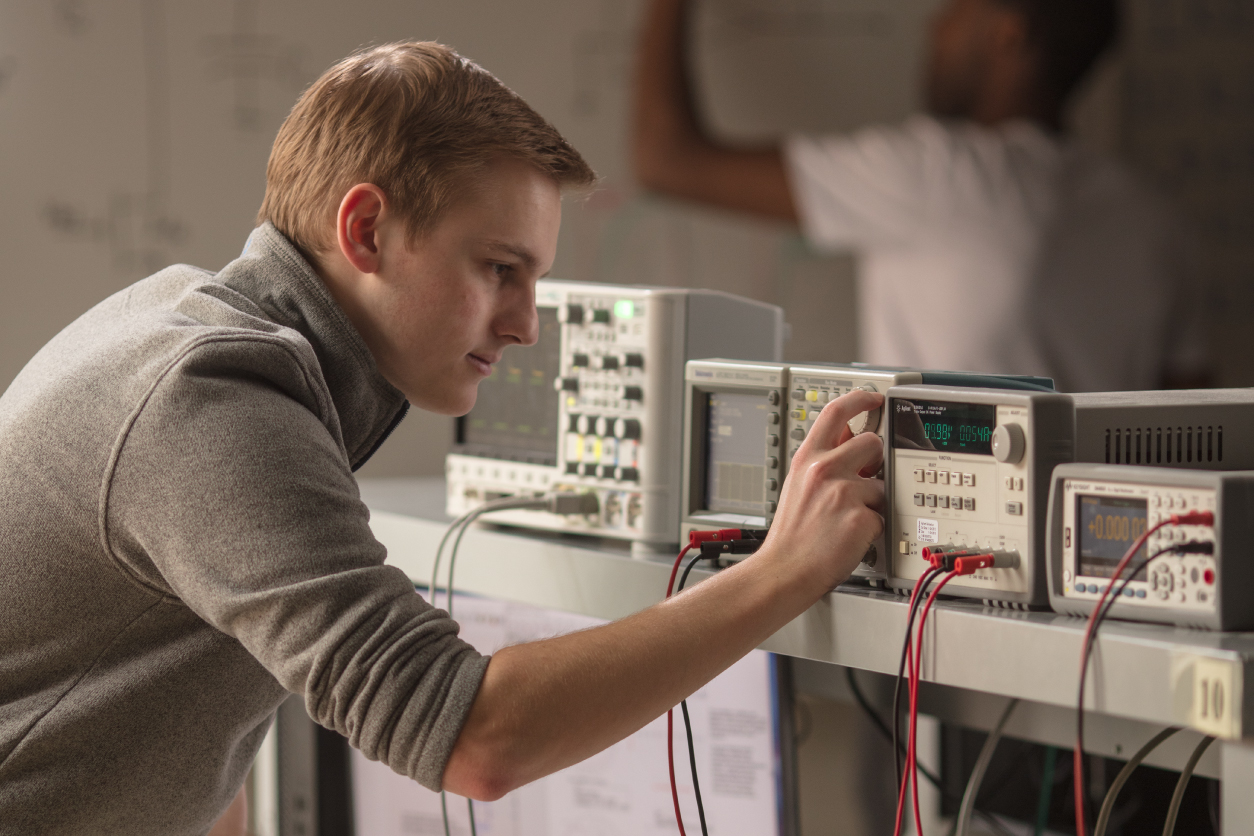
So… what’s the difference?
Iowa State offers four computing-related engineering majors:
Computer, Cyber Security, Electrical and Software
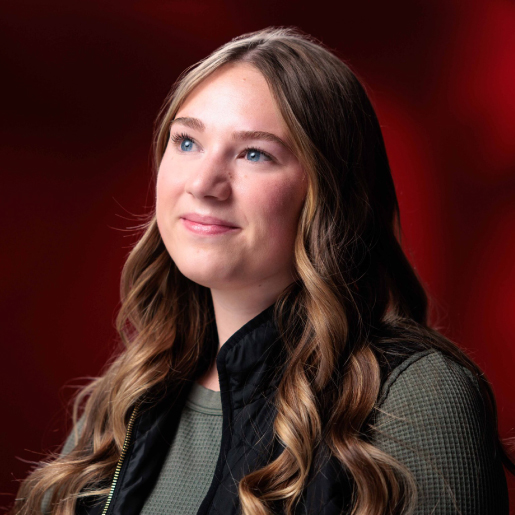
Iowa State teaches you to be a successful individual engineer and work as an engineer in a group setting, which is essential for your future career. That is why I am happy to say I learned to engineer like a Cyclone.
Kennedy Rieling, electrical engineering
What can I study?
Electrical engineers are at the core of our rapidly changing smart world. They:
- Design fast integrated circuits to speed up networks and processors
- Create smart biosensors to automate monitoring of crops and farm animals
- Design image and signal processing technologies and diagnostics instrumentation for early detection and monitoring of disease
- Design controls and communications systems for smarter robotics in for military and health, disaster relief, precision agriculture, and smart manufacturing
For the 2024-25 academic year, our electrical engineering students preferred these minors:
Electrical Engineering at Iowa State
The electrical engineering major at Iowa State offers the latest technology, cutting-edge research and world-renowned faculty, making it one of the best programs in the country.
-
Freshman Engineering Lab
Freshman Engineering Lab
Get hands-on experience during your first year in our freshman engineering lab. This is a great opportunity to understand and tinker with technologies that surround us, including wireless networks, smartphones and renewable energy systems.
-
Specialty Areas of Study
Specialty Areas of Study
- Communications and signal processing
- Electromagnetics, microwaves and nondestructive evaluation
- Electric power and renewable energy systems
- Nano- and micro-electronics and photonics
- Systems and controls
- Very large scale integration (VLSI) design
-
Career Area options
Career Area options
Electrical engineering is highly interdisciplinary work, giving you plenty of career options in nearly any industry imaginable. Consider these career area options:
- Energy: Design solar, wind and traditional electric power systems and make them more environmentally friendly, secure, reliable, efficient and affordable.
- Information and control: Create human-like robotic systems and enable them to sense, communicate and learn. Solve problems in electronic controls for aircraft flight control systems, autonomous vehicles and more.
- Bioengineering: Develop therapies with ultrasound, magnetic waves and other technologies to help doctors treat cancer and other diseases. Make biomedical imaging technology more valuable so MRI signals and images are easier to process and read.
- Electronics: Enhance the speed, materials and flexibility of electronics that connect us every day. Work with lasers, make computer chips smaller and faster and improve solar energy and smartphone technology.
The Future is What We Do!
Impact the nation’s electric power systems, biomedical imaging equipment that doctors use, tiny chips that operate your smartphone and other electronics, wireless technologies that people use worldwide, and nanotechnologies that biologists use to conduct experiments. Enhance technology to test hidden flaws in car engines and medical equipment, and improve electronic car safety systems.
Each year, Iowa State awards millions of dollars in scholarships to students. Learn more about scholarship opportunities for:
More information about cost of attendance and other types of aid is available from the Office of Student Financial Aid.
Orientation is for students who have accepted admission to Iowa State and plan to enroll in an upcoming term. During orientation you will be provided the opportunity to:
- meet with an academic advisor
- register for classes
- obtain your ISU card
- become familiar with the campus
- increase knowledge of important policies and procedures
The basic program for engineering majors is a set of courses common to all engineering curricula. Students normally enroll in the majority of the basic program courses during their first year.
Learn more about new student orientation and the first-year engineering program.
- 8,225 engineering students (fall 2024), the largest college on the Iowa State campus, with the support of 500+ engineering faculty and staff dedicated to teaching, research and student achievement.
- 75% of Iowa State engineering students graduate with engineering work experience. Internships and co-ops, learning communities, study abroad, 90+ engineering organizations give the hands-on experience to help shape student success.
- Our bachelor of science degree programs are accredited by the Engineering Accreditation Commission of ABET.
- More college facts and highlights
What courses should I be taking in high school to prepare for a engineering degree?
Many high school students have access to college-level courses in high school. We know it’s in your nature to maximize your opportunities.
Learn more about what’s required, what’s recommended and what will transfer
What kind of a laptop computer will I need?
Iowa State University students are required to own or obtain a laptop computer appropriate to your discipline and program of study.
College of Engineering laptop computer recommendations
Can I study abroad?
Engineering International Programs can help you find study or work abroad experiences suited to your interests and goals. Expert staff can assist with course enrollment and transfers to keep you on track for graduation.
Learn more about Engineering International Programs
Are there ways to get practical work experience while at Iowa State?
Participation in a co-op or internship is a great way to gain real-world work experience. Students are employed by industry and government organizations in positions related to their major field of study. Unlike a typical part-time or summer job, an engineering co-op or internship must Involve the Practice of Engineering, and students must be paid. Co-ops and internships are not required by the college, but they are highly encouraged.
Learn more about Internships and Co-ops
There are also opportunities for students to work alongside professors doing research in areas related to their major field of study.
Learn more about Undergraduate Research Opportunities
Engineering Recruitment and Student Services
1300 Marston Hall, 533 Morrill Road, Ames, IA 50011
Phone: (515) 294-7186
Office Hours: Monday-Friday, 8 a.m.-5 p.m.
